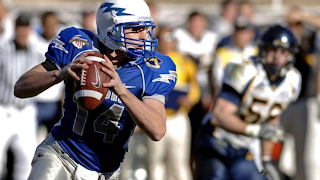A study observed the long-term effects of concussion symptoms on the cognitive abilities of former professional football players. Led by investigators at McLean Hospital and Spaulding Rehabilitation, this study demonstrated how the former players performed even worse than non-players in a battery of cognitive tests.
 |
| Image credit- Pixabay |
Measuring cognitive performances
In the initial stage of the investigation, the researchers selected 353 retired National League players. What these players had in common was a history of concussion symptoms and an average of 29 years after the end of their playing careers. These participants underwent hour-long neuropsychological tests through an online platform called TestMyBrain. The tests involved assessments measuring visual-spatial and working memory, processing speed, vocabulary, and sustained attention.
After determining the results of these assessments, a follow-up analysis took place. In this analysis, the cognitive performance of the former players was compared to that of 5,086 men from the general population. It was observed that these participants with no professional football experience outperformed the retired players. It was also interesting to note that while younger former players could perform better than the nonplayers on some tests, older former players were more likely to perform worse.
Concussion symptoms lead to cognitive decline
The investigation established a link between concussion symptoms and cognitive performance. This was accomplished by measuring the recorded concussion symptoms. The players were asked the number of times they experienced symptoms such as headache, nausea, dizziness, confusion, seizure, etc. Other symptoms that they were asked about included loss of consciousness, disorientation, feeling unsteady on feet, visual problems, and memory problems.
 |
| Image credit –Wikimedia Commons |
From these assessments, the researchers were able to find a relationship between former players’ cognitive performance and recalled football concussion symptoms. For instance – in visual memory, the difference in the scores between the former players with the highest and lowest reported concussion symptoms was found to be equal to the difference in the cognitive performance of a 35-year-old and a 60-year-old.
This data indicates that football exposure can accelerate cognitive aging. Laura Germine commented,” It is well established that in the hours and days after a concussion, people experience some cognitive impairment. However, these new findings show that professional football players can still experience cognitive difficulties associated with head injuries decades after they have retired from the sport.” In this regard, the researchers emphasized the need of initiating more studies to track cognitive performance in former players as they age.
The research also points to another vital need – the need to have better awareness and adequate management of head injuries.The researchers believe that this has spared the younger retired players from exhibiting similar levels of cognitive aging as the older ones.
The investigators also came across a limitation in their study – a lack of data on cognition before the head injuries. To this, Ross Zafonte, President of Spaulding Rehabilitation Network added,” efforts should be made to develop ways to enhance diagnosis and define long-term sequelae of concussion.”
The study is published in the Archives of Clinical Neuropsychology
If you enjoyed reading our articles, please consider supporting us by buying our geeky merchandise on Instagram
Alternatively, you could buy us a coffee or follow us on Facebook, Twitter, Pinterest, or Medium



